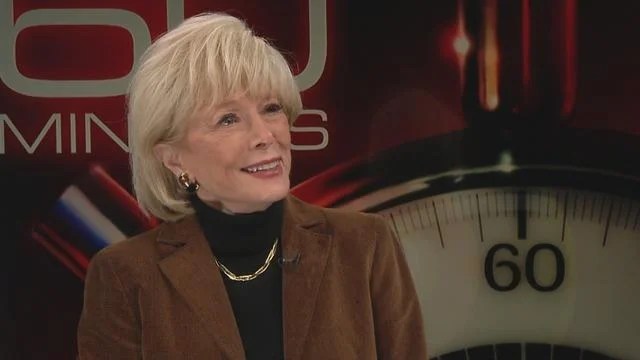The world of journalism is as dynamic as it is influential, and few platforms epitomize this more than the long-standing television program "60 Minutes." For over five decades, it has brought forth some of the most compelling stories through the lens of its dedicated reporters. These journalists not only inform the public but also shape the narrative around critical social, political, and economic issues. With a commitment to investigative reporting, the 60 Minutes reporters delve deep into their subjects, uncovering truths that often challenge the status quo.
Behind each segment lies a team of talented reporters whose expertise and determination drive the show’s success. From hard-hitting investigations to human-interest stories, the diversity of topics covered by 60 Minutes reporters is vast and impactful. Viewers tune in not just for news but for stories that resonate on a personal level, sparking conversations around dinner tables and influencing opinions across the nation.
As we explore the world of 60 Minutes reporters, we will dive into their backgrounds, the challenges they face, and the stories that have defined their careers. This examination provides insight into the role these journalists play in our society, highlighting their dedication to uncovering the truth and informing the public. Join us as we uncover the stories behind the reporters who have become synonymous with investigative journalism at its finest.
Who Are the Notable 60 Minutes Reporters?
The roster of 60 Minutes reporters boasts a variety of acclaimed journalists who have made significant contributions to the field of journalism. Some of the most notable names include:
- Ed Bradley
- Diane Sawyer
- Lesley Stahl
- Scott Pelley
- Anderson Cooper
What Makes 60 Minutes Reporters Unique?
The uniqueness of 60 Minutes reporters lies in their investigative approach and storytelling abilities. They employ various techniques to gather information, including:
- In-depth interviews
- Extensive research
- Field investigations
- Collaboration with experts
These methodologies not only enhance the credibility of their reports but also engage viewers, making the stories relatable and impactful.
What Are the Challenges Faced by 60 Minutes Reporters?
Despite their success, 60 Minutes reporters face numerous challenges in their line of work. Some common obstacles include:
- Time constraints for producing in-depth stories
- Pressure from external sources, including corporations and governments
- Ensuring the accuracy and fairness of their reports
- Maintaining journalistic integrity in a rapidly changing media landscape
These challenges require reporters to be resilient, adaptable, and committed to their ethical responsibilities.
What Are Some Iconic Stories Covered by 60 Minutes Reporters?
Over the years, 60 Minutes reporters have covered a plethora of iconic stories that have made headlines worldwide. Some of these include:
- The Watergate Scandal
- The Enron Scandal
- Investigations into the tobacco industry
- Interviews with world leaders and controversial figures
These stories not only highlight the reporters' skills but also their commitment to uncovering the truth, often at great personal risk.
How Do 60 Minutes Reporters Prepare for Their Segments?
The preparation process for 60 Minutes reporters is rigorous and multifaceted. Steps taken include:
- Conducting preliminary research to understand the topic
- Identifying key individuals to interview
- Drafting questions that elicit insightful responses
- Rehearsing segments to ensure fluidity during filming
This meticulous preparation ensures that each report is not only informative but also engaging for the audience.
What Impact Have 60 Minutes Reporters Had on Society?
The impact of 60 Minutes reporters extends beyond the television screen. Their investigative work has led to:
- Increased public awareness of critical issues
- Changes in policy and legislation
- Accountability for powerful individuals and organizations
- Promotion of social justice and human rights
Their reporting has catalyzed discussions and actions that have shaped public opinion and influenced societal change.
What Is the Future of 60 Minutes Reporters?
As the media landscape evolves, the future of 60 Minutes reporters appears promising yet challenging. With the rise of digital platforms and changing viewer habits, these reporters must adapt to new forms of storytelling while maintaining their core values of integrity and accuracy. The ongoing commitment to investigative journalism will remain a cornerstone of their work, ensuring that 60 Minutes continues to deliver valuable insights and stories that matter.
Conclusion: Why Are 60 Minutes Reporters Essential to Journalism?
In conclusion, the 60 Minutes reporters are more than just journalists; they are storytellers, truth-seekers, and advocates for accountability. Their unique approach to reporting, combined with their dedication to uncovering the truth, makes them essential figures in the landscape of journalism. As they continue to tackle pressing issues and bring critical stories to light, their role in informing and shaping public discourse remains invaluable.
| Name | Role | Years Active | Notable Stories |
|---|---|---|---|
| Lesley Stahl | Correspondent | 1972-Present | Watergate Scandal, 9/11 Investigations |
| Scott Pelley | Anchor, Correspondent | 2000-Present | Hurricane Katrina, Financial Crisis |
| Anderson Cooper | Correspondent | 2003-Present | Haiti Earthquake, War in Syria |
You Might Also Like
Exploring The Life Of Barron Trump's Girlfriend: Who Is She?Mark Harmon Health: The Journey Of A Television Icon
Discovering The Talents Of Raegan Revord
Travis Kelce Injury Update: What Fans Need To Know
The Ultimate Guide To Game Awards 2024 Vote: Celebrating Excellence In Gaming
Article Recommendations
- Downloadhub
- Movieshubapkcloud
- Movirulz Kannada
- Google Rank Tracking
- Wentworth Miller Wife
- Brice Akuesson Age
- Jd Vance Plastic Surgery
- Taylor Swift Mum Cancer
- Scott Mcgillivray Baby Adoption
- Cristin Milioti Son


